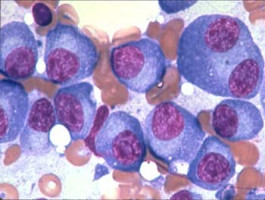
A study published in the journal Oncotarget has reported that in order to understand the molecular mechanism of the dependency in MM, the research team examined gene expression changes upon DOT1L inhibition in sensitive and insensitive cell lines and discovered that genes belonging to the endoplasmic reticulum stress pathway and protein synthesis machinery were specifically suppressed in sensitive cells.
Whole-genome CRISPR screens in the presence or absence of a DOT1L inhibitor revealed that concomitant targeting of the H3K4me3 methyltransferase SETD1B increases the effect of DOT1L inhibition.
Dr Ralph Tiedt from Novartis Institutes for BioMedical Research (NIBR) Oncology, Basel, Switzerland said: "MM is an aggressive haematologic cancer characterised by the monoclonal expansion of plasma cells secreting high amounts of immunoglobulins."
The sensitivity of MM cells to proteasome inhibitors is thought to be due to perturbation of the hyperactive UPR, which may offer some degree of selectivity versus non-cancerous cells.
Through pharmacologic and genetic approaches, we found that inhibition of DOT1L, an H3K79 methyltransferase, profoundly reduces the viability of a subset of MM cell lines in vitro and inhibits the growth of established MM xenografts in mice.
CRISPR screens further revealed that targeting the histone methyltransferase SETD1B concomitantly with DOT1L further enhances this effect on the UPR and increases and accelerates MM cell death.
The Tiedt Research Team concluded: "Our discovery indicates a novel opportunity for DOT1L inhibitors in cancer treatment. Concomitant targeting of SETD1B enhances phenotypic and transcriptional effects of DOT1L inhibition in sensitive MM cell lines, which may be an additional therapeutic angle. To our knowledge, no selective SETD1B inhibitors have been described yet, and our data questions whether its methyltransferase activity is critical in the MM context. Additional work is needed to address this question and guide drug discovery."
Source: Oncotarget / Impact Journals LLC
We are an independent charity and are not backed by a large company or society. We raise every penny ourselves to improve the standards of cancer care through education. You can help us continue our work to address inequalities in cancer care by making a donation.
Any donation, however small, contributes directly towards the costs of creating and sharing free oncology education.
Together we can get better outcomes for patients by tackling global inequalities in access to the results of cancer research.
Thank you for your support.